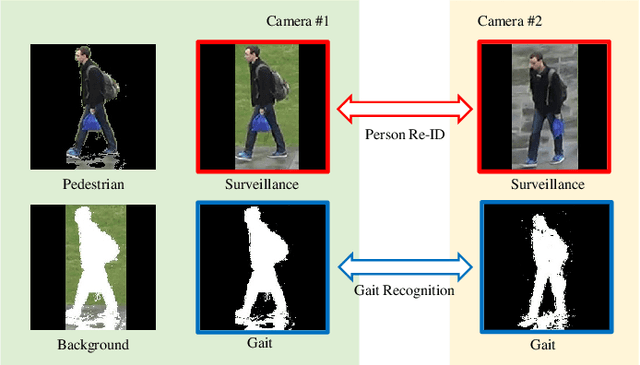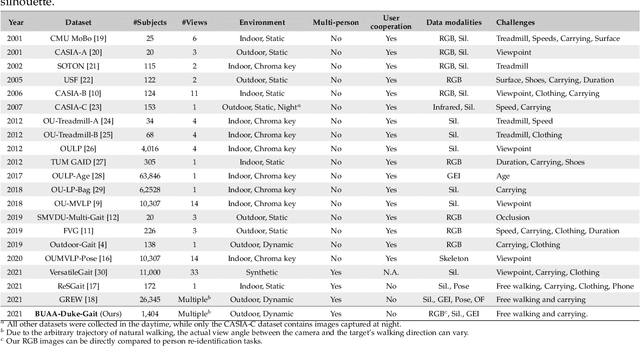RealGait: Gait Recognition for Person Re-Identification
Paper and Code
Jan 13, 2022



Human gait is considered a unique biometric identifier which can be acquired in a covert manner at a distance. However, models trained on existing public domain gait datasets which are captured in controlled scenarios lead to drastic performance decline when applied to real-world unconstrained gait data. On the other hand, video person re-identification techniques have achieved promising performance on large-scale publicly available datasets. Given the diversity of clothing characteristics, clothing cue is not reliable for person recognition in general. So, it is actually not clear why the state-of-the-art person re-identification methods work as well as they do. In this paper, we construct a new gait dataset by extracting silhouettes from an existing video person re-identification challenge which consists of 1,404 persons walking in an unconstrained manner. Based on this dataset, a consistent and comparative study between gait recognition and person re-identification can be carried out. Given that our experimental results show that current gait recognition approaches designed under data collected in controlled scenarios are inappropriate for real surveillance scenarios, we propose a novel gait recognition method, called RealGait. Our results suggest that recognizing people by their gait in real surveillance scenarios is feasible and the underlying gait pattern is probably the true reason why video person re-idenfification works in practice.
 Add to Chrome
Add to Chrome Add to Firefox
Add to Firefox Add to Edge
Add to Edge